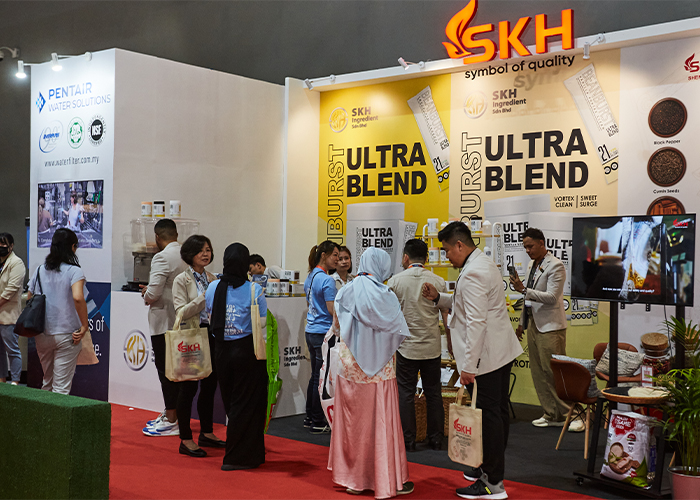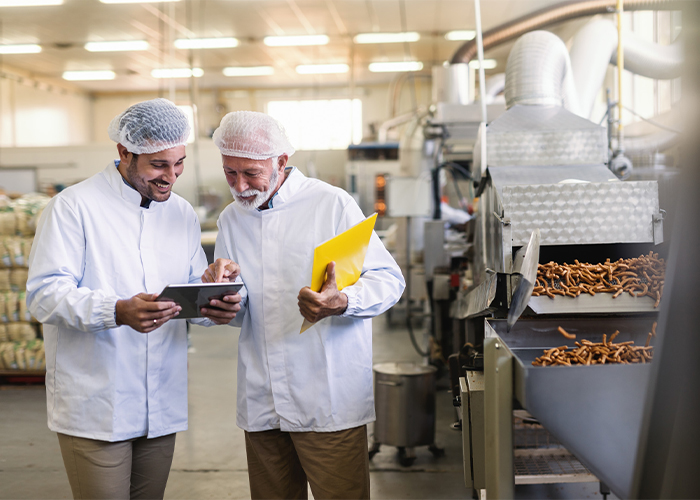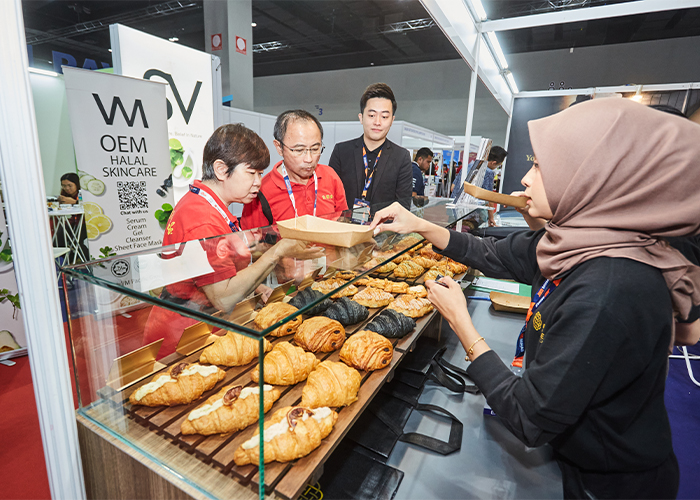The Future of Taste is Halal: ASEAN’s F&B Industry Gets an Innovation
As the global demand for Halal products grows, shifting from a religious obligation to a preference for quality, safety and ethical sourcing, the Halal food and beverage industry is experiencing a quiet revolution. At the heart of this transformation lies innovation, encompassing product development, technology, certification, branding and logistics.
As the world’s largest Halal trade showcase, MIHAS 2025 offers a glimpse into the future of Halal innovation. With Malaysia currently holding the ASEAN chairmanship and reaffirming its position as the gateway to the region, MIHAS has never been more relevant or influential. This influence is particularly evident in the food and beverage sector, where Halal is not just about compliance, but also a driver of global innovation, technology, and sustainability.
From Tradition to Tech: The New Face of Halal
For decades, Halal compliance has been rooted in tradition, driven by religious doctrine and community trust. However, by 2025, the term 'Halal' will signify more than just what is permissible. It will signal a value system encompassing sustainability, health consciousness, transparency, and innovation.
Malaysia, often regarded as the global benchmark for Halal certification, has been at the forefront of this evolution. Through initiatives supported by the Halal Development Corporation (HDC) and platforms such as MIHAS, Halal has moved beyond its niche status. It is now a blueprint for ethical consumption, powered by smart manufacturing, clean-label ingredients, blockchain traceability and alternative proteins.
The ASEAN Momentum
With Malaysia taking the lead in ASEAN in 2025, the regional Halal narrative is gaining momentum. However, ASEAN's Halal strategy is centred on establishing the region as a dependable provider of premium, clean and sustainable food solutions.
The Halal food and beverage (F&B) industry is quickly becoming a key pillar of ASEAN’s agri-food trade strategy. Indonesia is investing in the automation of Halal slaughterhouses, Thailand is combining Thai gastronomy with Halal certification to appeal to global travellers, and Singapore is experimenting with cultivated meat that aligns with Halal principles.
MIHAS 2025 will play a pivotal role in connecting ASEAN's Halal producers with the global market, creating opportunities for both large corporations and small-to-medium enterprises (SMEs), cooperatives, and women-led businesses.
The MIHAS International Sourcing Programme (INSP) will bring buyers from around the world to discover Halal-certified food and beverages from across Southeast Asia, many of which reflect centuries-old culinary traditions reimagined for today's global palate.

Spotlight on F&B Innovation at MIHAS 2025
The Malaysia International Halal Showcase (MIHAS) has always done more than just showcase products. It connects innovation, investment and insight.
MIHAS 2025 will bring together emerging players, legacy brands, agri-tech start-ups, certification bodies, and government agencies from across the Halal supply chain. However, the focus this year is on innovation-led growth.
Join us at MIHAS 2025 and see:
- Functional Halal Foods: Nutraceutical-infused drinks, Halal-certified probiotics and clean-label snacks tailored for wellness-conscious consumers
- AI in food production: AI-driven quality control systems and smart warehousing optimised for Halal logistics.
- Plant-based Halal alternatives: A new category that’s gaining ground, especially in terms of bridging the gap between health and ethical food choices and Islamic principles.
- Sustainable Packaging: Biodegradable packaging and traceable sourcing are integral to the Halal narrative of the product.
- Digital Halal Assurance: Blockchain-based platforms that enable the real-time tracking of Halal status across the supply chain.
These innovations are becoming the expectation in an increasingly sophisticated Halal market.
The Halal Consumer Is Changing
The new Halal consumer is younger, better informed and more globally connected. Millennials and Generation Z consumers in ASEAN, the Middle East and Europe want food that is not only Halal but also healthy, ethically produced and environmentally responsible.
This shift is forcing Halal food and beverage (F&B) businesses to reimagine their value propositions. Halal certification is no longer enough; brands must also communicate trust, transparency, and impact.
Traceability, for example, which was once a back-end compliance feature, is now a front-end marketing story. QR codes on packaging allow consumers to trace the origin of their chicken nuggets or kombucha bottles back to their Halal-certified farms or factories.
These stories of authenticity are driving brand loyalty. At MIHAS 2025, they will be a central part of brand storytelling workshops, innovation labs and exhibitor showcases.
Investing in Halal Innovation
Malaysia’s Halal ecosystem, which has been developed over the last two decades, is now focused on commercialising innovation. With government support, venture capital is entering the Halal sector. Halal tech start-ups are gaining traction, offering everything from AI-driven quality assurance to cloud kitchens serving Muslim-friendly, on-demand meals.
MIHAS 2025 will focus on business matching and INSP sessions, providing an opportunity for these start-ups to meet institutional investors, trade buyers and global distributors. This is an opportunity for ASEAN businesses to elevate local Halal brands to an international level.
However, innovation isn’t just tech-driven. It can also be seen in how traditional brands adapt. Legacy food producers are redesigning their products for export markets by incorporating new flavours, formats and certifications.

Sustainability: The New Pillar of Halal
By 2025, Halal will be about more than just what you eat; it will also be about how food is made, sourced and packaged. As commitments to environmental, social and governance (ESG) practices grow stronger, particularly among ASEAN economies, Halal producers are integrating climate-conscious and socially responsible practices into their operations.
This includes zero-waste production models, biodegradable packaging and ethical labour practices. Consequently, the Halal food and beverage (F&B) industry is positioning itself at the intersection of sustainability and spirituality.
At MIHAS, sustainability will be more than just a buzzword. With a particular focus on certain areas, the event will showcase how Halal-certified producers are using renewable energy, vertical farming, and the principles of the circular economy to meet the demands of Gen Z Muslim consumers.
The Role of Policy and Certification
Innovation doesn’t happen in a vacuum. One of MIHAS 2025’s main areas of focus will be to streamline the Halal certification process, particularly for SMEs in the food and beverage (F&B) sector. The agenda includes faster approvals, mutual recognition of standards across ASEAN and digital submission systems.
With Malaysia holding the ASEAN chair, momentum is building behind the push for an integrated Halal certification ecosystem. The creation of a central ASEAN Halal Digital Registry is a possibility, and MIHAS could be the launchpad for this collaborative initiative.
This could be a game-changer, reducing duplication, increasing transparency and encouraging more cross-border Halal trade.
What the Future Holds
Looking ahead, the Halal food and beverage (F&B) industry will continue to redefine what 'permissible' means — not just in a religious sense, but also in terms of consumer awareness. Ethical sourcing, fair labour practices and carbon footprint disclosures are becoming standard requirements for many buyers and consumers.
MIHAS 2025 is a bellwether in this evolving landscape, not just a trade event. It showcases the direction in which the Halal food and beverage industry is heading and, more importantly, the companies leading the way.

In 2025, all signs point to Malaysia not just as a host, but also as an innovator, connector and catalyst.
The Halal F&B industry is dynamic and evolving. It's dynamic, design-led and deeply consumer-centric. From blockchain-enabled traceability to plant-based innovations, the industry is undergoing a transformation that goes far beyond mere compliance.
As Malaysia assumes its role as ASEAN chair and continues to shape global Halal standards, MIHAS 2025 will be the crucible of these changes — where ideas meet action and innovation meets opportunity.
For businesses, policymakers and investors alike, MIHAS is more than just a date in the diary. It's the future of Halal happening now. Be present and drive the conversation forward. Join MIHAS 2025 as an exhibitor or attendee.


